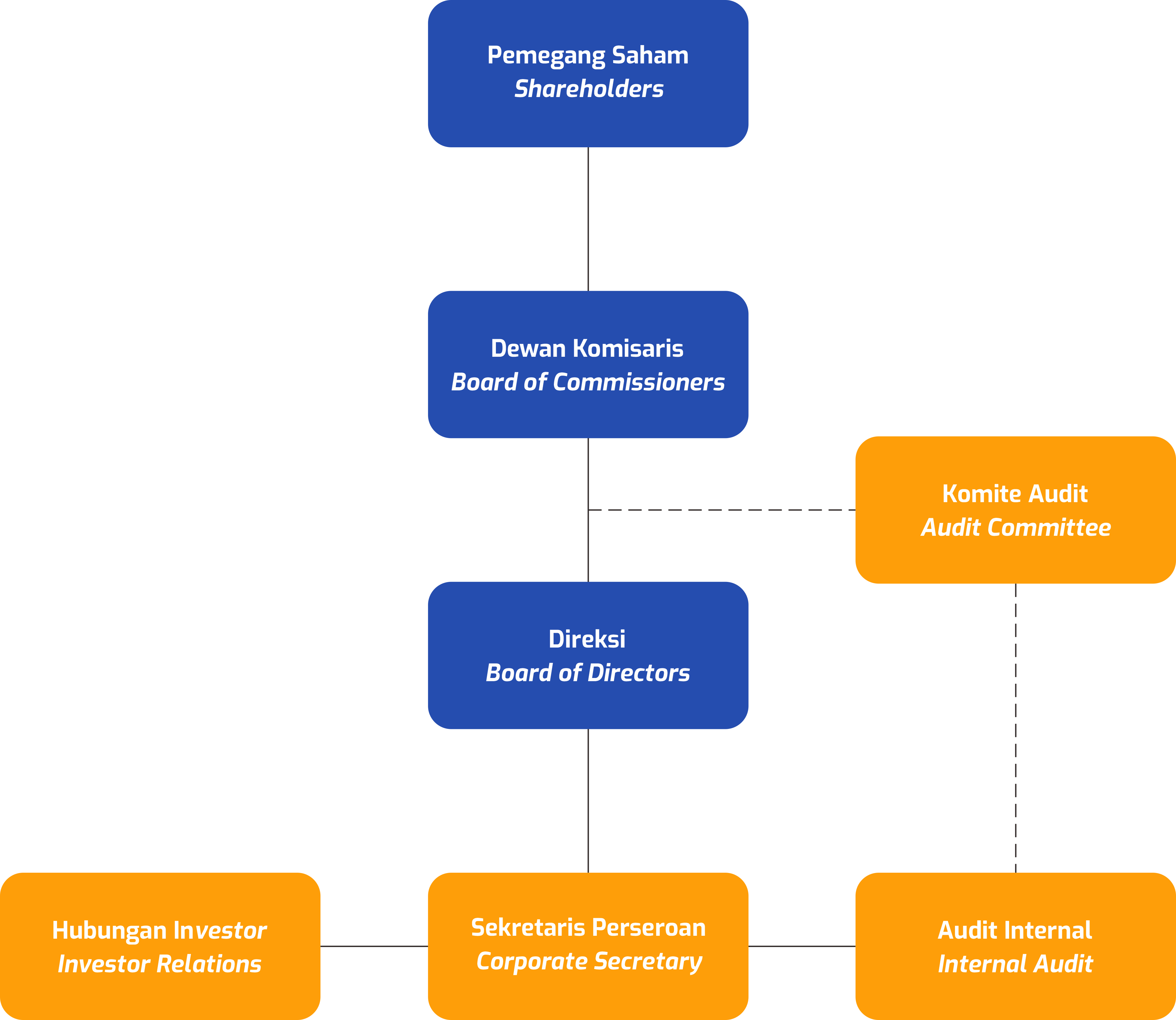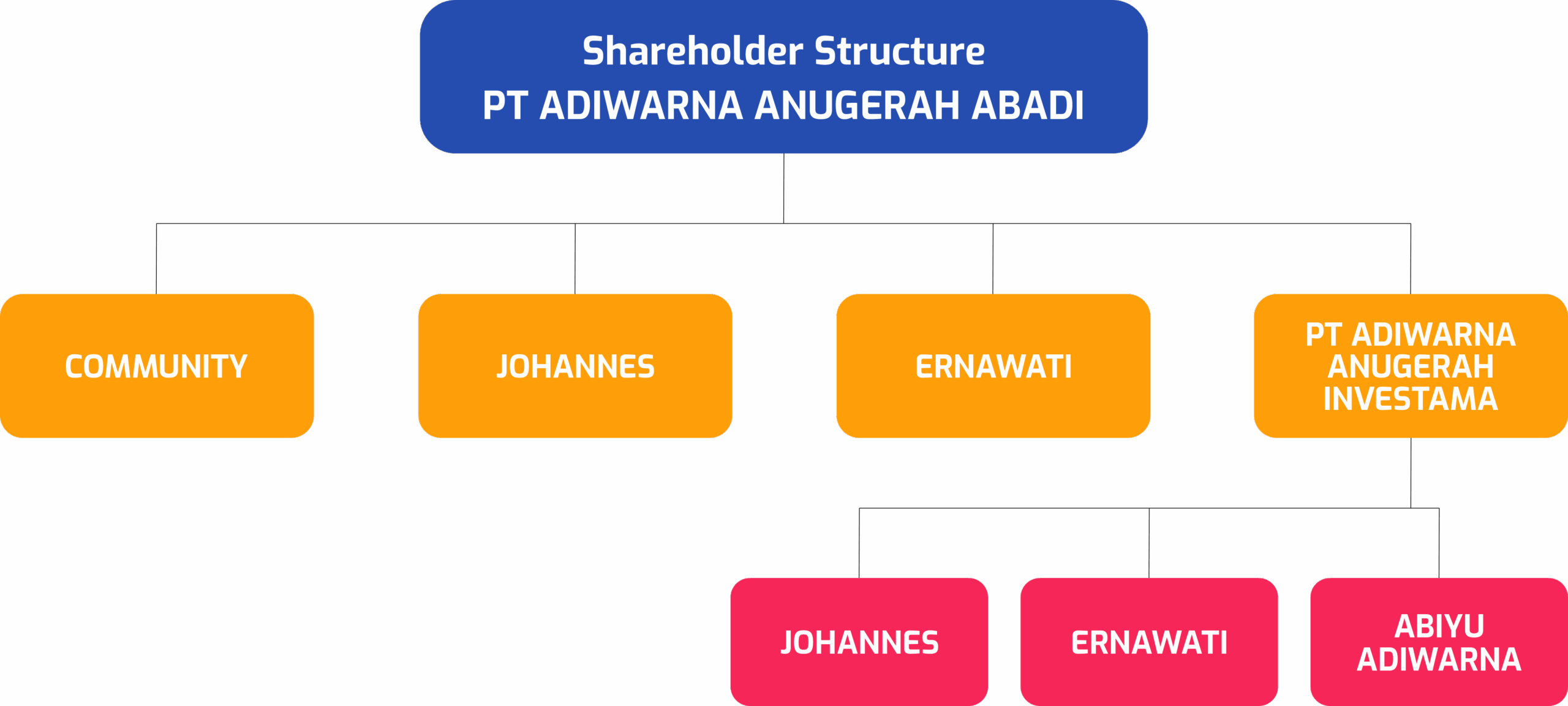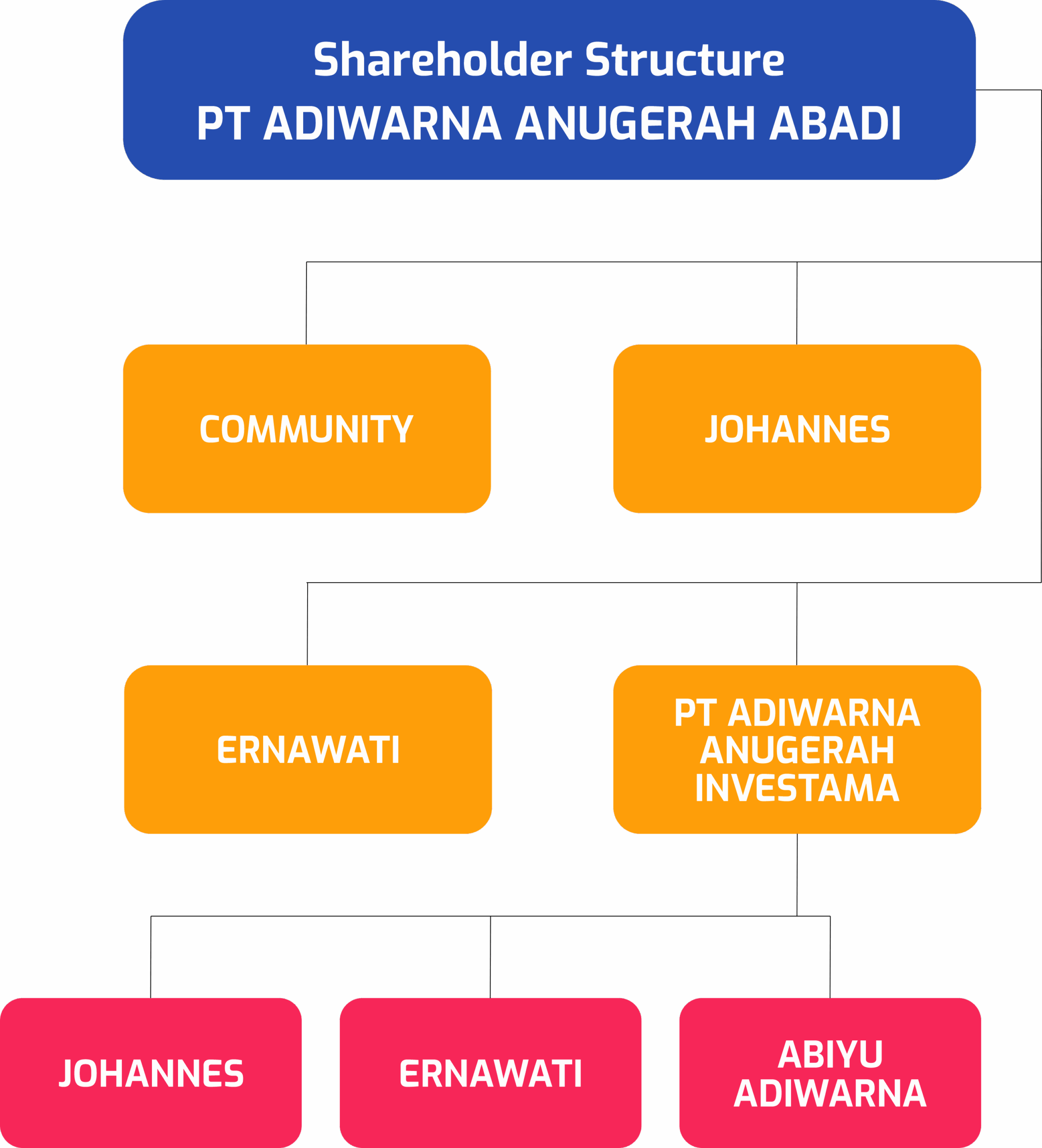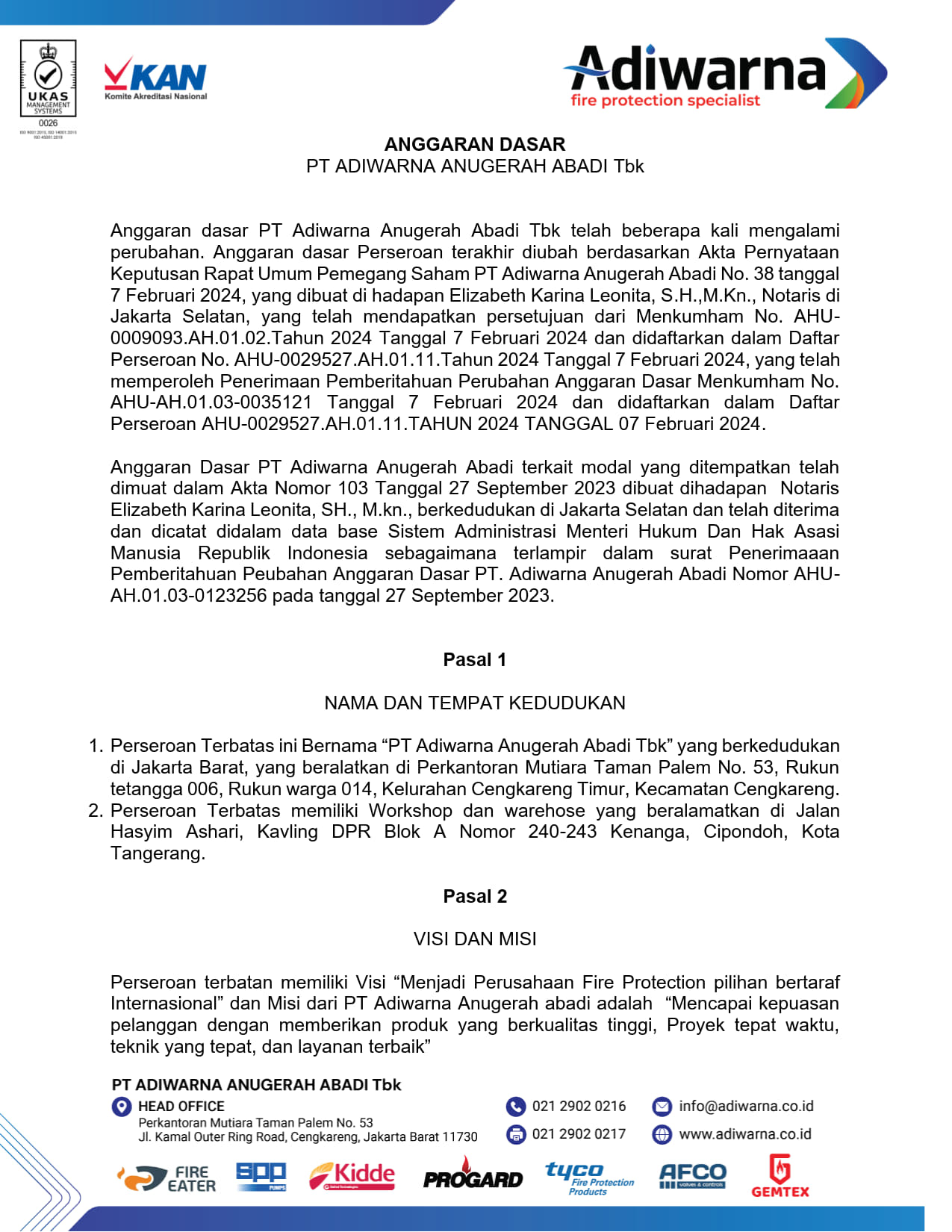Corporate Governance
- Corporate
- Corporate Governance
Commitment to Good Corporate Governance
The implementation of Good Corporate Governance (GCG) practices has become a necessity for businesses around the world, including Indonesia. GCG is a principle that underpins the processes and mechanisms of corporate management based on compliance with laws and regulations, as well as reflecting the ethics of business actors. In the concept of sustainable development, GCG is one of the main pillars expected to form the foundation of a healthy investment climate. Furthermore, GCG has become one of the fundamental factors for investors in assessing a company’s sustainable performance into the future.
As a company with the vision of “Becoming the leading cement producer in Indonesia, a player in the ready-mix concrete (RMC) market in Java and South Sumatra, and the top player in the aggregate market in Jabodetabek,” Indocement is committed to applying GCG principles in its operations. The implementation of GCG principles is part of the effort to achieve business success in an ethical, legal, and sustainable manner, while maximizing benefits for shareholders and other stakeholders.
The Company is committed to consistently upholding GCG principles by establishing committees, systems, and working units to maintain and enhance GCG practices within the Company on an ongoing basis.
Basis and Objectives of GCG Implementation
The implementation of GCG principles in the Company refers to laws and regulations, including:
1. Law No. 8 of 1995 concerning Capital Markets;
2. Law No. 40 of 2007 concerning Limited Liability Companies;
3. Financial Services Authority Regulation No. 33/POJK.04/2014 concerning the Board of Directors and Board of Commissioners of Issuers and Public Companies;
4. Financial Services Authority Regulation No. 21/POJK.04/2015 concerning the Implementation of Guidelines for Corporate Governance of Public Companies;
5. Financial Services Authority Regulation No. 31/POJK.04/2015 concerning Disclosure of Information or Material Facts by Issuers or Public Companies;
6. Financial Services Authority Circular Letter No. 32/SEOJK.04/2015 concerning Guidelines for Corporate Governance of Public Companies;
7. Financial Services Authority Regulation No. 15/POJK.04/2020 concerning the Plan and Implementation of General Meetings of Shareholders of Public Companies;
8. Indonesian Corporate Governance Roadmap issued by the Financial Services Authority;
9. The 2021 Indonesian Corporate Governance Guidelines (PUGKI) issued by the National Governance Policy Committee;
10. Best practices and internationally applicable standards such as the ASEAN Corporate Governance Scorecard.
Based on these laws and regulations, Indocement continues to strive to align and improve the quality of GCG implementation in the Company.
Corporate Governance Objectives
In its implementation, the Company must ensure the application of GCG in every aspect of the business and at every level of the Company’s organizational structure with the following objectives:
- To optimize the value of the Company for Shareholders while taking into account the interests of Stakeholders and encouraging business continuity based on the principles of transparency, accountability, responsibility, independence, fairness, and equality;
- Encouraging the Company’s organs, namely the GMS, Board of Commissioners, and Board of Directors, to make decisions and carry out actions based on high moral values and compliance with the provisions of the articles of association and applicable laws and regulations;
- Encouraging more professional, transparent, and efficient management of the Company, as well as empowering the functions and increasing the independence of the Company’s organs;
- Encouraging and supporting the development and management of the Company’s resources and business risk management through the application of the principles of prudence, accountability, and responsibility in line with the principles of GCG;
- Encouraging the Company’s social awareness and responsibility towards the community and environmental sustainability, especially in the areas surrounding the Company’s operations;
- Providing guidelines for each member of the Board of Directors, Board of Commissioners, and employees of the Company in managing the Company professionally, transparently, and efficiently, as well as empowering functions and enhancing independence, based on moral values and compliance with laws and regulations, as well as awareness of the Company’s social responsibility towards stakeholders and the environment;
- Enhancing the Company’s competitiveness both nationally and internationally, thereby gaining market confidence to drive investment flows and sustainable national economic growth.
Key Principles
To achieve the objectives of GCG implementation, the Company continues to improve and implement GCG principles consisting of Transparency, Accountability, Responsibility, Independence, Fairness and Equality, as guidelines for the Company in carrying out its operational activities. In accordance with the Guidelines for the Implementation of Good Corporate Governance, these GCG principles are defined as follows:
- Transparency, which refers to openness in the decision-making process and openness in disclosing material and relevant information about the Company;
- Accountability, which refers to the clarity of the functions, implementation, and responsibility of the Organization so that the management of the Company is carried out effectively;
- Responsibility, which refers to the compliance of the Company’s management with laws and regulations and sound corporate principles;
- Independence, which is a situation where the Company is managed professionally without conflicts of interest and influence/pressure from any party that is not in accordance with laws and regulations and sound corporate principles;
- Fairness and Equality, which is fairness and equality in fulfilling the rights of Stakeholders arising from agreements and applicable laws and regulations.
Corporate Governance Structure
Corporate Governance Structure
In accordance with Law No. 40 of 2007 concerning Limited Liability Companies (PT Law), the corporate governance structure is broadly outlined in the main organs of the company, namely the General Meeting of Shareholders (GMS), the Board of Commissioners, and the Board of Directors. As stipulated in the Company’s Articles of Association and applicable laws and regulations, each organ plays a crucial role in implementing GCG and performing its functions, duties, and responsibilities for the benefit of the Company.
The implementation of GCG is carried out systematically and continuously, ensuring that GCG principles serve as a guiding framework for Indocement’s daily operations. In managing the Company, the Board of Directors is supported by an effective management structure and supporting bodies, including the Company Secretary, Internal Audit, and Safety Committee. In performing its supervisory functions, the Board of Commissioners is supported by supporting bodies such as the Audit Committee and the Nomination and Remuneration Committee.
In their implementation, each of the Company’s bodies carries out their duties, functions, and responsibilities independently for the benefit of the Company in accordance with applicable laws and regulations, the Company’s articles of association, and other applicable provisions.
The Company’s governance structure can be described as follows:



PT Adiwarna Anugerah Abadi Tbk Stock Presentation

PT Adiwarna Anugerah Investama Stock Presentation


